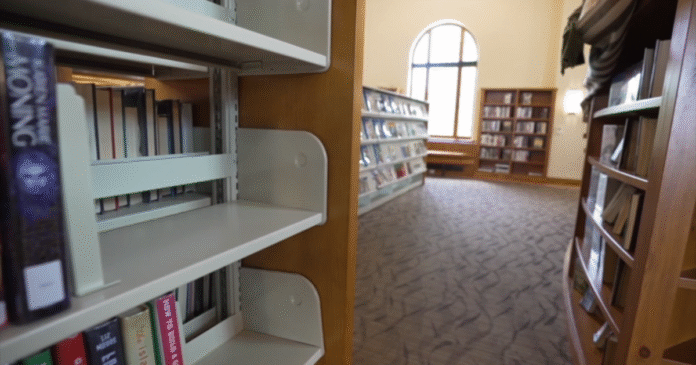SALT LAKE CITY — Leaders on Capitol Hill heard a new audit about how schools handle what is termed “sensitive materials” for children.
It started with a Utah law, which has been revised, about banning material in schools that contain what some consider pornographic or indecent, as laid out in Utah code. The auditors examined the processes and procedures in place for removing books from libraries and found some issues.
“We feel that with proactive policies put into place, we can prevent some of the reactive issues that we did see,” said Morgan Hagey, with the office of the Legislative Auditor-General.
Auditors said there needs to be a clearly outlined approval process for teachers and librarians to pick books, without having to go back and remove them. “It would hopefully prevent some of the material from coming in and provide those librarians the support that these decisions aren’t all on them,” added Leah Blevins, also with the office of Legislative Auditor-General.
In the audit, some teachers reported removing their classroom libraries or received backlash from the public because of books on their shelves. The Utah State Board of Education responded to the audit and said there is a criterion for schools when it comes to choosing books.
“We put it in our model policy, our model police that we prepare for LEA’s for their reference, does include selection criteria but it is up ultimately to the LEA to make a decision if it’s going to go in their policy or not,” said Dr. Molly Hart, State Superintendent of Public Instruction, Utah State Board of Education.
“I’ve seen some of these books that are in elementary schools and they’re not appropriate for high school, let alone in an elementary school,” said House Speaker Mike Schultz (R-Hooper). “And I’m grateful to the districts that work to get those out, and worked on by a lot of people to get those books out.”
“We can’t control every move a person does, we can do the best preventative factors as we like, but people have cell phones,” said House Minority Leader Angela Romero (D- Salt Lake City)
Another recommendation of the audit was looking at keyword filtering, which needs to be done by schools on every website and database that students can access on their school devices.
“While we did not find anything that we would be able to probably call sensitive within the database, the fact that students area able to search this and find what could be non-educational materials was our major concern,” said Hagey.
Corinne Johnson, President of Utah Parents United, shared a statement with FOX 13:
“Parents in Utah have been sounding the alarm on harmful content in school libraries for years. Today’s audit shows schools are working to follow policy, but it also shows there’s still more work to do. We appreciate Senate President Adams for extending the audit to address library content, and Speaker Mike Schultz’s call for more proactive steps to keep inappropriate materials out of our schools in the first place. Protecting kids from harmful content requires ongoing attention—and we’re glad to see our leaders taking it seriously.
Let Utah Read Co-Founder Rebekah Cummings also shared the following statement:
Let Utah Read appreciates the careful work of the USBE and auditors in collaboration with Utah teachers and librarians. As every audit has found since 2018, this most recent one affirms that the schools’ current online filters successfully block inappropriate
material. However, we find the auditor’s recommendation to “proactively” vet book selections by committee to be unnecessary and administratively burdensome.
Librarians are trained and hired to select books in compliance with existing LEA selection policies. Far more concerning than anything else the audit uncovered is that some teachers have purged their classrooms of libraries and have ceased making reading recommendations for fear of running afoul of Utah law.
Auditors aren’t done yet, they will continue to examine the processes that decide what books wind up on shelves. Lawmakers may also address the audit in the public education committee.
You can find the full audit here.






